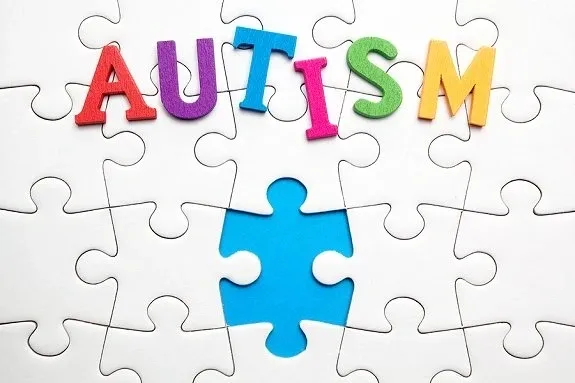
Understanding Autism Spectrum Disorder (ASD)
Autism Spectrum Disorder (ASD) is a lifelong developmental condition that affects how a person communicates, interacts with others, and experiences the world around them. While no two individuals on the spectrum are the same, people with autism often share certain characteristics, such as challenges in social communication, repetitive behaviours, and sensory sensitivities. With the right support, individuals on the spectrum can thrive and lead fulfilling lives.
One of the most important aspects of supporting someone with autism is ensuring they have access to evidence-based strategies tailored to their strengths and needs. This is where professionals such as a behaviour support practitioner play a vital role. They help individuals, families, and carers develop strategies that encourage positive behaviours and improve overall quality of life.
What is Autism Spectrum Disorder?
ASD is described as a “spectrum” because it encompasses a wide range of abilities and challenges. Some people may require significant daily support, while others live independently with minimal assistance. Despite these differences, most individuals experience some level of difficulty in two key areas:
- Social communication – This may include challenges with understanding non-verbal cues like gestures or facial expressions, difficulties in starting or maintaining conversations, or finding it hard to respond appropriately in social situations.
- Repetitive behaviours – These can involve repeating movements, using certain phrases, becoming distressed by changes in routine, or showing intense interest in a narrow range of topics.
Sensory sensitivities are also common. Many people on the spectrum may be highly sensitive to sounds, lights, textures, or smells. These differences can sometimes create stress in everyday environments.
Early Diagnosis and Intervention
A diagnosis of autism can feel overwhelming at first, but it also opens the door to targeted support and resources. When children or adults receive a timely diagnosis, families are better equipped to understand their needs and access appropriate services. Evidence shows that early intervention can make a significant difference in communication skills, social engagement, and coping strategies.
Support may include speech therapy, occupational therapy, and personalised behaviour plans. A behaviour support practitioner often works alongside these specialists, helping to design strategies that reduce distress, encourage independence, and build on individual strengths.
Common Challenges in Daily Life
Autism can affect many areas of life, from education to relationships. Some of the challenges individuals may experience include:
- Understanding social rules – Knowing when to join a conversation, how to respond to sarcasm or humour, or recognising personal boundaries can be difficult.
- Developing friendships – While many people on the spectrum want to connect with others, maintaining relationships may feel confusing or overwhelming.
- Adapting to change – Even small changes, such as moving furniture or altering a daily routine, can cause distress.
- Repetitive behaviours – These may provide comfort and structure but can sometimes interfere with learning new skills.
These challenges highlight why personalised support is so important. With guidance from professionals like a behaviour support practitioner, families and carers can learn practical approaches to help manage difficulties while nurturing the individual’s unique strengths.
Strengths and Abilities
It is equally important to recognise the many strengths people with autism bring to their communities. Individuals may have exceptional focus, attention to detail, honesty, creativity, or deep knowledge in areas of interest. These qualities can be nurtured to create meaningful opportunities in education, employment, and daily life.
A person-centred approach focuses not only on addressing challenges but also on encouraging independence, skill development, and participation in the wider community.
The Role of a Behaviour Support Practitioner
Families often ask what a behaviour support practitioner does and how they can help. Their role is to:
- Assess behaviour in the context of the person’s environment and needs.
- Work with families, carers, and support teams to create personalised behaviour support plans.
- Promote positive strategies that reduce behaviours of concern without the use of restrictive practices.
- Focus on building skills that improve independence and quality of life.
For individuals with autism, this may mean developing routines that reduce stress, using visual aids to support communication, or teaching coping mechanisms for sensory sensitivities. The ultimate goal is not to change who the person is but to help them live safely, confidently, and with dignity.
Building Inclusive Communities
Supporting people on the autism spectrum requires more than just individual intervention. It also means fostering inclusive environments in schools, workplaces, and communities. Educators, employers, and peers play a vital role in promoting understanding and acceptance.
Simple actions—such as providing quiet spaces, offering clear instructions, or showing patience during conversations—can make a significant difference. When paired with professional guidance from a behaviour support practitioner, these efforts create stronger, more inclusive communities where people with autism feel valued and understood.
Conclusion
Autism Spectrum Disorder is a lifelong condition that affects people in unique ways. While challenges in communication, behaviour, and sensory experiences are common, the right support can transform lives. Recognising strengths, encouraging independence, and offering evidence-based strategies are essential for meaningful progress.
A behaviour support practitioner plays a crucial role in this journey, helping individuals and families navigate challenges while building on what makes each person unique. With understanding, patience, and the right supports, people with autism can thrive and make lasting contributions to their communities.

